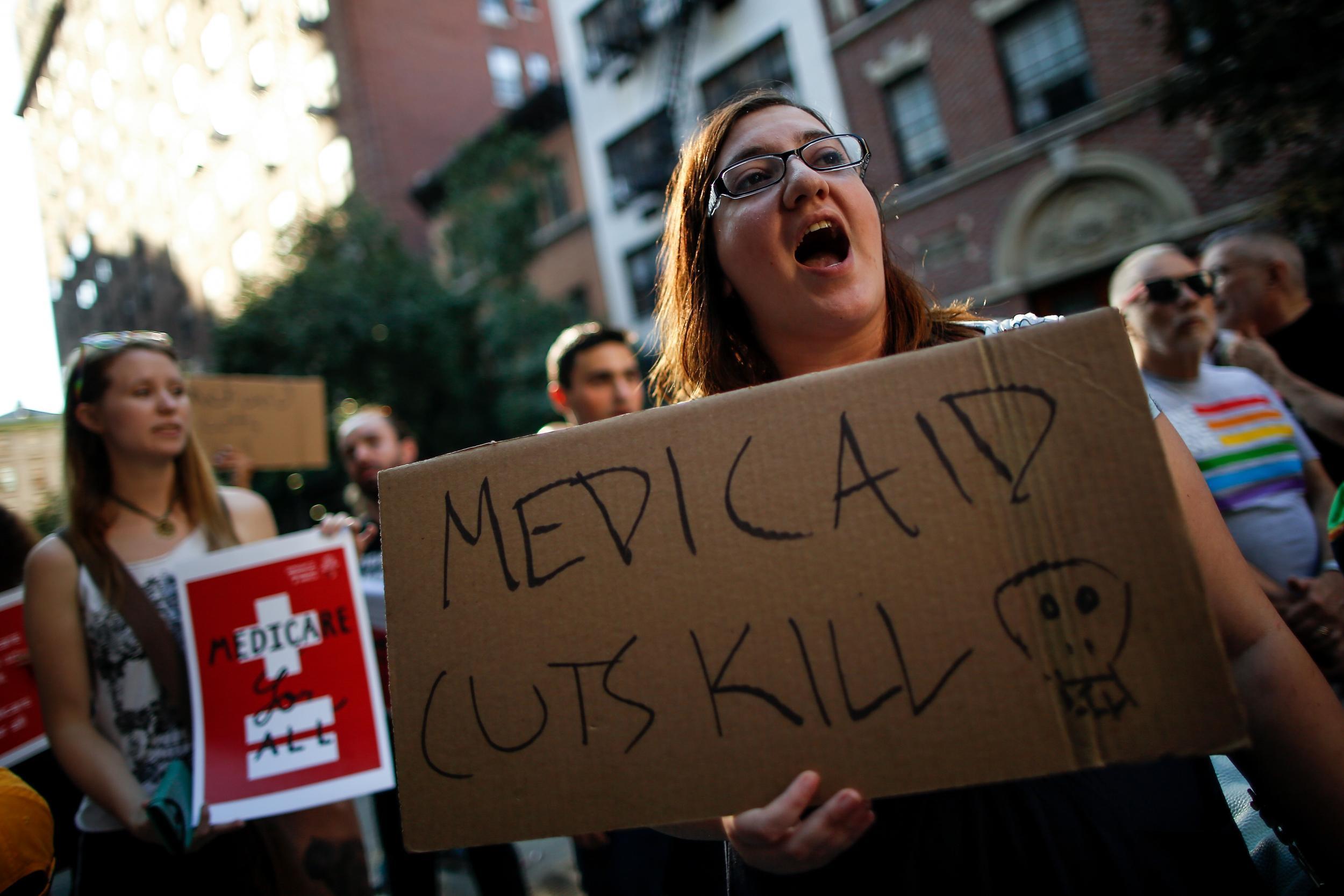Trump is allowing states to refuse medical care to the unemployed – which will, ironically, increase unemployment
In surveying beneficiaries of the Medicaid expansion, Ohio reported that three-quarters of beneficiaries who were looking for work said Medicaid made it easier for them to do so

Yesterday the Trump administration took a giant swipe at Medicaid, particularly the Affordable Care Act’s Medicaid expansion, by announcing a policy that would allow states to deny Medicaid coverage to otherwise eligible individuals if they are not working. This is a radical departure in policy that is at odds with the law – it is also not really about putting people back to work.
Medicaid is a health care programme that pays doctors, hospitals and others who provide health services to low-income eligible individuals. The law lets the federal government approve state requests to waive Medicaid requirements in order to undertake demonstration programmes that promote Medicaid’s objectives—i.e programmes that improve the delivery of health care to low-income, eligible people. There is nothing in the work requirement policy the Trump administration laid out that would do that.
What the work requirement would do is make Medicaid health insurance work less well for people who need it, particularly the nearly 15 million adults who gained health coverage through the ACA’s Medicaid expansion. The vast majority of these people would be uninsured without Medicaid health care coverage.
A work requirement will predictably result in many who cannot work because of health conditions being denied coverage. States will add hoops that Medicaid enrollees need to jump through to get or keep their health insurance. There’s no question that in the process, many will be cut from coverage by mistake, possibly with dire health consequences.
Giving people Medicaid coverage helps them get and keep good jobs. Locking them out could make it harder for unemployed people to find work. In surveying beneficiaries of the Medicaid expansion, Ohio reported that three-quarters of beneficiaries who were looking for work said Medicaid made it easier for them to do so. For those who were currently working, more than half said that Medicaid made it easier to keep their jobs.
Work-requirements in other programmes have not helped reduce poverty nor have they let to sustained employment. A study of the work requirement in the Temporary Assistance for Needy Families (TANF) programme found that work requirements had little or no effect in increasing work or cutting poverty. In fact, the vast majority of people subject to the work requirement remained poor and some became poorer.
However, the Trump administration’s move to let states add a work requirement isn’t based on either Medicaid law or sound policy or really about getting people back to work. The White House is using administrative means to do what Congress wasn’t able to pass through the legislative process: undercut Medicaid and the ACA’s Medicaid expansion.
Dee Mahan is the Director of Medicaid Initiatives at Families USA, a leading national voice for health care consumers in the US, is dedicated to the achievement of high-quality, affordable health care and improved health for all.


Join our commenting forum
Join thought-provoking conversations, follow other Independent readers and see their replies